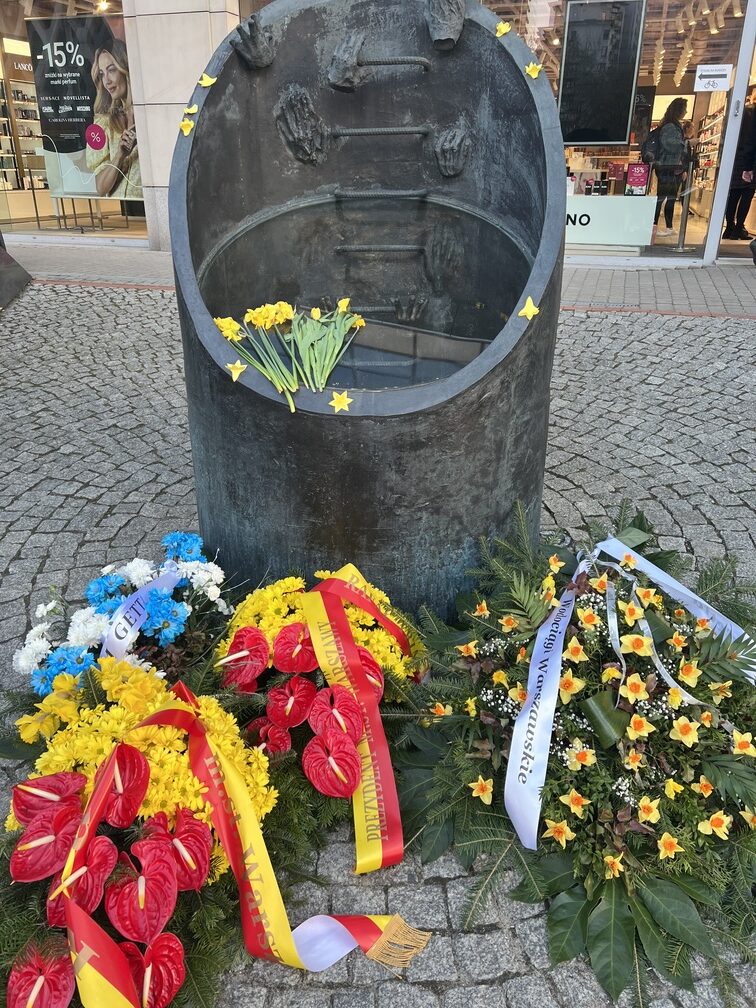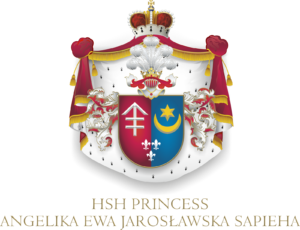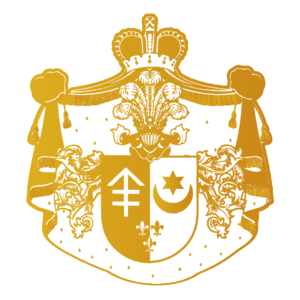On April 19th at noon I heard the sirens in Warsaw

On April 19th at noon I heard the sirens in Warsaw. I was at Warsaw’s Wola at that moment.
This was a symbolic form of homage to the heroes of the Warsaw Ghetto Uprising.
This year is the 78th anniversary of the outbreak of the rising.
Eighty years on from the Warsaw Ghetto Uprising – the largest Jewish revolt against Nazi Germany during World War II – Poland marked the heroism of those who took part with a warning to the world against sowing hatred.
One year ago Poland has adopted the resolution to designate the year of 2023 as the Year of Remembrance of the Warsaw Ghetto Heroes.
In 1940, German Nazi occupiers corralled over 400,000 Jews into a small section of the Polish capital Warsaw; most were then sent to camps to be killed or died from the conditions within the ghetto, but on April 19, 1943 hundreds took up arms.
Their fight against heavily armed German troops to try to stop the transports to the death camps ended on May 16, when the Germans razed the ghetto to the ground. An estimated 13,000 Jews were killed.
Warsaw Getto was the largest of the Nazi ghettos during World War II and the Holocaust.
It was established in November 1940 by the German authorities within the new General Government territory of occupied Poland.
Soon many of the Ghetto residents began to suffer from starvation, diseases and difficult sanitary conditions.
“The Jewish Warsaw is deteriorating. It is a cemetery, skeletons of the dead are strolling down the streets. (…) Sidewalks are immensely crowded. (…) Wherever you look, you see people limping, crippled, blind, missing an arm or a leg”
The uprising in the Warsaw ghetto was the largest act of Jewish armed resistance against Germany during World War II. It was also an act of heroic opposition to the tragedy of the Jewish nation, an important part of which was the liquidation of the Warsaw ghetto, which had started a few months earlier on 22 July 1942. Ghetto residents suffered terribly from starvation, diseases, and difficult sanitary conditions.
Young women and men who remained inside the closed district preferred to die with weapons in their hands rather than being gassed in Treblinka. The Uprising ended on 16 May 1943, when the Germans blew up the Great Synagogue at Tłomackie Street and razed the remainder of the ghetto to the ground.
It was strictly forbidden to leave the Ghetto. Death penalty awaited those Poles who would attempt to help Jews. Despite that, throughout the German occupation of Poland, Jews were rescued from the Holocaust by Polish people, at risk to their lives and the lives of their families. Hundreds of Polish families were killed for helping Jewish families.
War is hell.
No more war.
#nomorewar #warishell #peaceisthegreatestvalue




